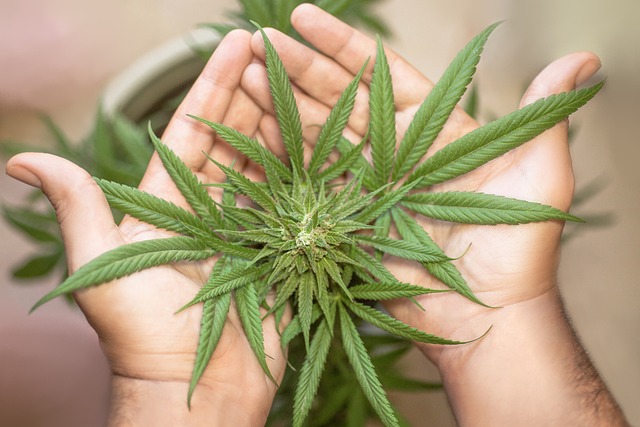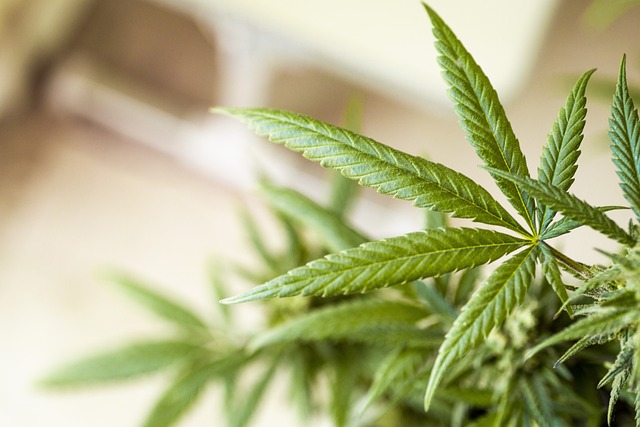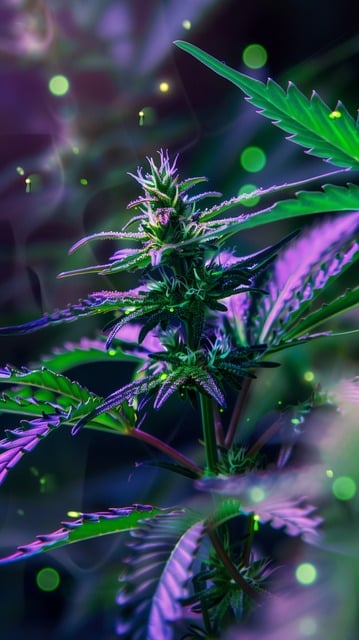The THCA flower is a non-psychoactive source of THCA, a cannabinoid that offers health benefits by interacting with the endocannabinoid system. It contains CBD and terpenes, which work together to enhance the entourage effect, maximizing the flower's therapeutic properties. The combination of these compounds provides potential relief from inflammation, anxiety, and stress without inducing intoxication. THCA is particularly associated with pain relief and neuroprotective benefits, while CBD is known for its anti-inflammatory and anxiolytic effects. Each terpene, including myrcene, limonene, and caryophyllene, contributes unique therapeutic advantages that complement THCA and CBD's properties, making the THCA flower a versatile and effective natural remedy for those interested in the benefits of cannabis compounds like CBD and terpenes.
Discover the transformative benefits of THCA (Tetrahydrocannabinolic Acid) flower, a non-psychoactive cannabinoid that’s garnering attention for its therapeutic potential. In this comprehensive guide, we delve into how THCA flower stands apart from CBD and the synergistic role of terpenes in enhancing its effects. Explore its interactions with the endocannabinoid system, its comparative advantages to traditional medicines, and the scientific evidence backing its compounds and health implications. From cultivation and dosing to incorporating it into your wellness routine, this article covers all aspects of THCA flower, setting the stage for an informed exploration of its place in holistic health and the broader market. Join us as we navigate the legal landscape, understand best practices for storage, and uncover the economic trends shaping the future of this promising plant compound. Whether you’re a seasoned user or new to the world of cannabinoids, this article will equip you with knowledge to harness the full spectrum of benefits that THCA flower offers in conjunction with CBD and terpenes.
- Unlocking THCA Flower's Potential: A Deep Dive into its Benefits
- THCA Flower vs CBD: Understanding the Differences and Similarities
- The Role of Terpenes in Enhancing THCA Flower's Effects
Unlocking THCA Flower's Potential: A Deep Dive into its Benefits

The THCA flower, rich in tetrahydrocannabinolic acid (THCA), holds significant potential within the realm of natural wellness. This non-psychoactive precursor to THC has garnered attention for its therapeutic properties and is often sought after for its health benefits. Unlike its psychoactive counterpart, THCA flower interacts with the body’s endocannabinoid system without inducing intoxication, making it a viable option for individuals looking to harness cannabis compounds for wellness purposes. The entourage effect, a phenomenon where CBD and terpenes enhance each other’s effects, plays a crucial role in maximizing the potential of THCA flower. By incorporating a broad spectrum of CBD, which itself is known for its calming and pain-relieving properties, and a diverse profile of terpenes, each with their unique aromas and benefits, the THCA flower offers a holistic approach to wellness. These compounds work synergistically to provide a comprehensive effect that may offer relief from various conditions, including inflammation, anxiety, and stress, without the mind-altering effects associated with THC. As such, the THCA flower stands out as a promising natural remedy, offering a myriad of benefits for those looking to explore the therapeutic properties of cannabis.
THCA Flower vs CBD: Understanding the Differences and Similarities

THCA, or Tetrahydrocannabinolic Acid, is the raw cannabinoid found in the Cannabis sativa plant before it undergoes heat which converts it to THC, the psychoactive compound known for its mind-altering effects. THCA flower, which contains this non-psychoactive acidic form of THC, has been gaining attention for its potential therapeutic benefits, similar to those found in CBD, or Cannabidiol. Both THCA and CBD interact with the body’s endocannabinoid system, influencing various physiological processes without intoxication.
Unlike THC, THCA is not psychoactive and is often preferred by individuals seeking the potential wellness effects of cannabis without the “high.” THCA flower contains a unique profile of terpenes, which are aromatic compounds that contribute to its distinct flavors and scents. These terpenes can enhance the therapeutic properties of the flower, providing a synergistic effect that may be more effective than CBD alone. The differences in effects between THCA and CBD stem from their diverse interactions with cannabinoid receptors within the body; THCA’s effects are believed to be more focused on pain relief and neuroprotection, while CBD is often lauded for its anti-inflammatory and anxiety-reducing properties. In contrast, both compounds share similarities in promoting overall health and well-being, with ongoing research continuing to uncover their potential benefits. Whether chosen for their distinct effects or used in conjunction, understanding the nuanced differences between THCA flower and CBD is crucial for consumers looking to harness the therapeutic properties of cannabinoids and terpenes.
The Role of Terpenes in Enhancing THCA Flower's Effects

The THCA flower, a form of raw cannabis that contains the non-psychoactive cannabinoid tetrahydrocannabinolic acid (THCA), offers a range of potential benefits that are further enhanced by the presence of CBD and terpenes. These natural compounds work synergistically to amplify the therapeutic effects of THCA. Terpenes, in particular, are aromatic oils found in various plants, including cannabis, and are known for their distinct flavors and fragrances. In the cannabis plant, terpenes not only contribute to its aromatic profile but also play a critical role in modulating the effects of THCA and CBD. The entourage effect is a term used to describe this synergistic interaction where the combined effect of all the compounds in the cannabis plant is greater than the sum of its individual parts. This means that when using a THCA flower with a rich terpene profile, users may experience more pronounced benefits due to the enhanced absorption and modulation of cannabinoid activity within the body’s endocannabinoid system.
Furthermore, specific terpenes like myrcene, limonene, and caryophyllene, which are commonly found in THCA flowers, have been studied for their individual effects. Myrcene, for example, is known for its sedative properties, which can contribute to the relaxing and analgesic effects of the flower. Limonene has been associated with mood elevation and stress relief, while caryophyllene offers anti-inflammatory benefits. The combination of these terpenes with THCA and CBD in a cannabis flower creates a potent blend that can offer a wide array of wellness advantages, including pain relief, anxiety reduction, and improved overall well-being. Users seeking to harness the full spectrum of benefits from their THCA flowers should consider the role of these terpenes, as they are integral to enhancing the efficacy and experience associated with cannabinoid use.
THCA flower, a non-psychoactive cannabinoid, has emerged as a subject of growing interest due to its potential health benefits. This article has explored the unique properties of THCA flower, differentiating it from CBD while highlighting their shared therapeutic attributes. The presence of terpenes in THCA flower plays a pivotal role in enhancing its effects, offering a comprehensive wellness experience. As research continues to unfold, the benefits of incorporating THCA flower and understanding its synergy with terpenes become increasingly evident. Users exploring alternative wellness solutions may find the non-intoxicating nature of THCA flower to be particularly advantageous. With ongoing scientific investigation, the potential applications for THCA flower in conjunction with CBD are set to expand, promising a rich and diverse addition to the field of natural health remedies.
